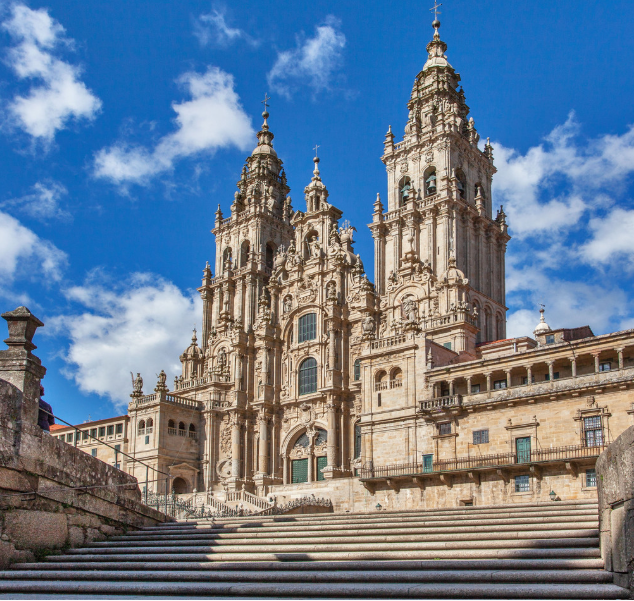Reading Luke/Acts Together #66 – The Camino’s End
If this “honeymoon album” of the early church has been thrilling thus far, let’s pause to think of Stephen in chapter 7, and now – with no real explanation! – the sorry, sad fact that Herod (not the one who killed babies when Jesus was born, but Herods are all the same!) “laid violent hands upon some who belonged to the church. He killed James the brother of John with the sword.” Killed. Worried you know people who think church-going is silly? Following Jesus cost James his life! What if we lived with such danger?
I love the notice that “this was during the days of unleavened bread.” Yes, simply marking the date. But the feast of unleavened bread was birthed because the Israelite slaves, brutally mistreated by Pharaoh, had to hustle out of Egypt so quickly they took no yeast with them for their bread – a forever symbol of barely surviving the hatred of the powers of the world.
An almost humorous story follows. Peter knocks on the door of the Christians who are sure he’s a goner, like James. Rhoda (I love that her name is preserved!) answers. The believers inside do not believe – but Peter has been miraculously freed. And then Herod himself is struck down by God. Do we find ourselves longing for evil leaders to be struck down by God in this way?
James’s death is fascinating. One of the first called by Jesus, one of those “sons of Zebedee” who dropped everything and followed Jesus: what had become of his family and fortune back home? We cannot know. Did Zebedee, and Mrs. Zebedee become Christians? We cannot know. When their son lost his life in this young, crazy cause, what was their grief like?
According to tradition, James’s body was taken to Spain and buried in the church we now know as Santiago de Compostela – the culmination of the famed and now popular pilgrimage walk, the Camino. There isn’t a Camino, but several, many paths to the same church. Lisa and I walked some of this road in May. You see others walking – just walking, or getting exercise, or on a spiritual quest, who knows?
What fascinates me is that the walkers are all going one-way only. No one is walking away from Santiago. All roads lead in that one direction. I suspect God relishes this, since God’s love for us is a one-way, done deal. And is there a sense that many people from many places wind up in the same place – and so perhaps there are many Christian ways toward God, not just the one I know and feel comfortable with?
James could have gone home to his fishing business with his father. But he stayed on the road, even after Jesus was gone. Such a huge risk to himself! – but he stayed out there for the mission. What might we be asked by God to risk for God’s mission? What might it actually cost us? Time? Money? Friends? Fun?
The judgment upon Herod seems fanciful. But isn’t God’s judgment very real upon all earthly rulers, especially those who vaunt themselves as god-like? Any time we see someone in power strutting, cockily assuming the place of God, we hold our breath for the downfall, which is inevitable. No earthly ruler wins at the end. All are judged; all falter; all fail to deliver. Only God is God. And this is as God designed such things.
